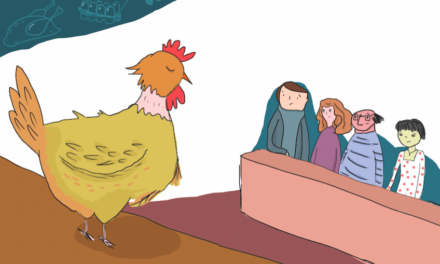Animals are not like humans
It is terribly wrong to talk about the equality of animals and humans. Animals are not like humans because they lack many traits that only humans can have: arrogance, hypocrisy, conceit, ambition, and greed.
It’s an unrealistic comparison when people who misbehave are told: “You behave like an animal”. What’s wrong with an animal’s behavior? We know that people do things that animals would never think of. Animals don’t kill for pleasure, for recreation, out of jealousy, or for money. These are qualities that can only be attributed to an ‘advanced’ man. Animals kill to survive and protect themselves and their offspring. They don’t wear hunting suits and they don’t put a hunting rifle on their backs to kill Bambi’s mom for fun. No animal has ever started a war or had slaves in fields to pick cotton for them.
We can hardly talk about equality between humans and animals when animals behave more civilized and humanely than many members of the human species. Who has ever met a hypocritical cow or an arrogant sheep who thinks they are better than everyone else? Arrogance and hypocrisy are precisely reflected in the attitude towards these beings who depend on people, their mercy, and humanity.
Who doesn’t want us to know that animals are smart?
There is a myth around the world about how stupid domesticated animals are, especially chickens, geese, pigs, cows, and sheep. It is not known why people consider them stupid; perhaps because these animals don’t know how to speak any foreign human language, they don’t know how to write novels, paint, or play the violin, and they do badly in mathematics. When they don’t know any of that, the presumption is that they can at least serve as food.
This myth about stupid animals is in the interest of the multi-billion dollar meat and dairy industry because what if people knew how smart, sensitive, and sociable the food they eat really is? Maybe they would stop eating it and that would mean the downfall of the meat empire and the archaic cultural and religious practices that go with it.
It is therefore not surprising that there is little scientific research on the lifestyle and behavior of domesticated farm animals that would show how sentient they are. One of the reasons why people don’t eat their pets is precisely the awareness of how their beloved companions have personalities and intelligence. However, a dog and cat do not have to prove themselves to humans by knowing foreign languages, playing the violin, or cooking a meal to be considered worthy of living.
Research on the lifestyle and behavior of domesticated animals is mostly conducted in unnatural conditions. Animals are placed in cages, chemicals are injected into their bodies while they’re awake, they have electrodes placed on their heads, and they are kept in confined spaces, which brings them into a state of stress, anxiety, and suffering. How can the results of such animal behavior research be credible? In addition, domesticated animals don’t live in the same conditions as their ancestors, so their behavior in the modern world is learned and in contrast with their biological instincts.
There is a big difference in whether scientists observe the behavior of animals in their natural environment or in cages. It is not the same thing to study the behavior of lions and monkeys in the jungle and their counterparts confined in zoo cages. Likewise, it is not the same to study the behavior of cows in vast meadows or those in the confines of factory farms. The only thing that can be concluded is that animals behave differently in the wild compared with being confined. In captivity, animals are irritated, depressed, and lifeless. Studying the behavior of domesticated animals leads to only one conclusion: how worthy they are of human respect. The meat industry certainly doesn’t want that to be seen in the ‘Breaking News!’
Abilities that animals have and humans do not
What are the skills that humans have but animals do not have to be considered less valuable? People can speak foreign languages, read and write, and dance waltz, but animals can’t. Therefore, is it okay to consider illiterate sheep and cows unworthy of living? If we measure the value of living beings by the abilities and skills they have, rather than measure them from our own skillset, we would come to the conclusion that animals can do a lot that humans can only dream of.
Birds can fly and humans cannot. Birds, however, do not put humans in cages. Cheetahs can run 130 km per hour. People would have a hard time qualifying for the Olympics if it took place in the savannah. Comparatively, humans are somewhat sluggish and slow. Should they be considered less valuable and put in a zoo?
Charles Darwin, the author of On the Origin of Species, wrote that: “there is no fundamental difference between man and the higher mammals in their mental faculties.” He also wrote that: “the senses and intuition, the various emotions and faculties, such as love, memory, attention, curiosity, imitation, reason, etc., of which man boasts, may be found in an incipient, or sometimes even well-developed condition in the ‘lower’ animals.”
While many people spend their entire lives repeating the same mistakes, a turtle quickly learns the path from one place to another after going the wrong way once, realizing that repeating the same mistake leads nowhere. Mice quickly learn how to avoid traps while humans often fall into the same ones more than once. In overcoming the obstacles that animals encounter, they use experience and intelligence that many people would envy.
It isn’t wise to compare the way animals experience the world with how humans do and use this as a means of justifying their slaughter simply for our taste buds. There are thousands of edible plants in the world we could sustain ourselves with instead.














